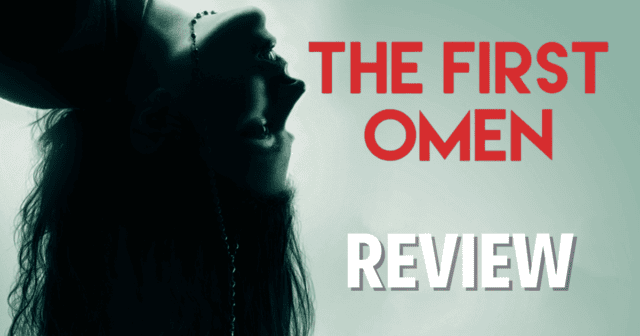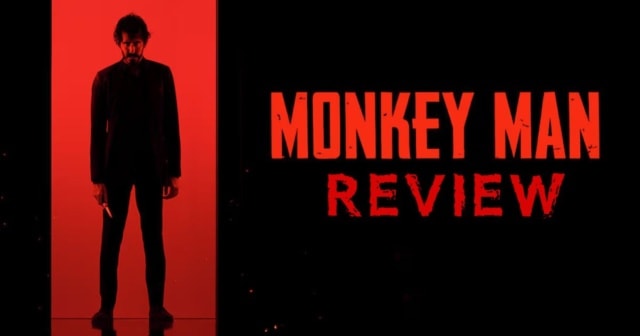Review: Alex Garland’s ‘Civil War’ is an Empty Political Dystopia
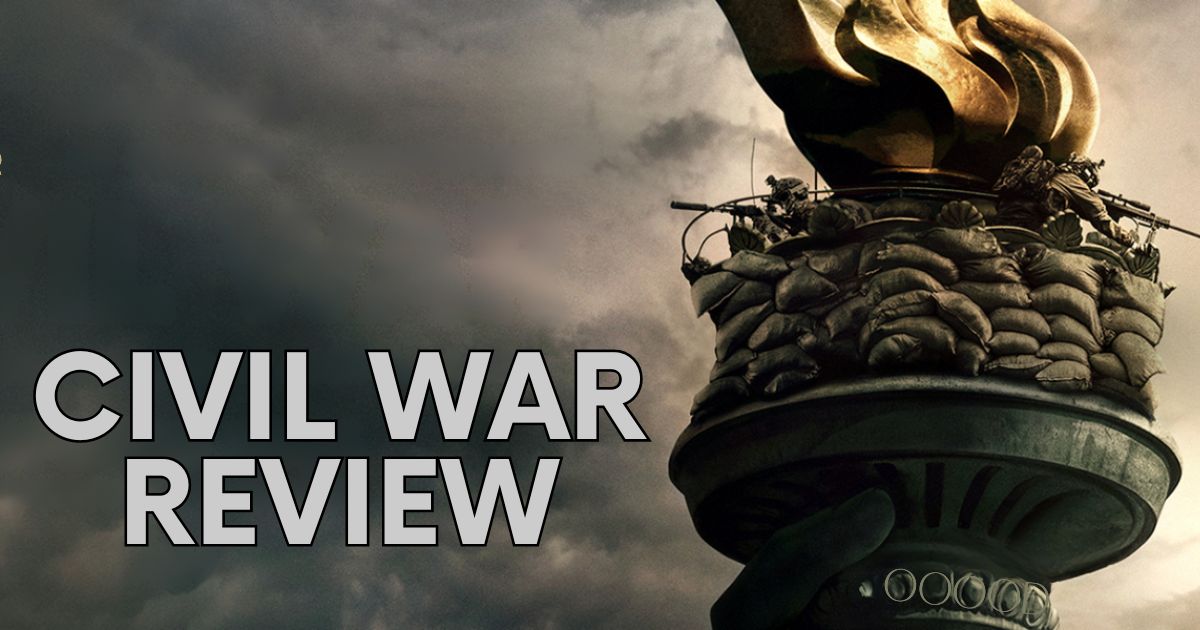
When Alex Garland’s Civil War premiered at SXSW, the early reactions were quick to call it a “masterpiece” and an “important warning” or “cautionary tale” about the future of American politics and the state of journalism, as democracy is (quite literally) on the ballot in November. Some even (dared) compare its importance to the likes of Gillo Pontecorvo’s The Battle of Algiers or Costa-Gavras’ Z, arguably the two greatest political films ever crafted.
Civil War and the alarming real life events that parallel it
Of course, one can’t overstate the fact that 2016 was a foundational year in American politics, as the very concept of democracy began to fade away with the election of Donald J. Trump. The end of his term culminated in a deadly insurrection, where his supporters attempted to overturn the legitimate results of the election by storming the Capitol. Some even wore “MAGA Civil War” t-shirts as they attempted to destroy the very principles of the United States Constitution and go after the ones who were trying to preserve and protect it.
The Trump Presidency also represented a major rift in the relationship between the media and politics, with the former President frequently touting major institutions as “fake news” and “the enemy of the people.” This slowly eroded confidence between his supporters and the media, with many of his supporters instead believing the word of a power-hungry despot.
While Civil War is set in a fictional vision of America, specifically showcasing what would happen if a power-hungry President (Nick Offerman) served a third term in office, the parallels between modern-day America and what the film presents are never far off.
The film opens with the President preparing for a speech in which he attempts to gaslight the population that he is not at fault for the modern-day Civil War occurring between Washington and the Western Forces (of Texas and California, imagine that), but the ones who resist his despotic policies through his third term in office. He doesn’t explicitly say this, but it’s not hard to think of Trump as he decries to his supporters that a “politically-motivated witch hunt” is in place to criminally indict him for “saving our country.”

As Garland continues to draw elements from modern-day instances of American politics, such as name-dropping “the disbanding of the FBI” or “the ANTIFA massacre,” one may think the film indeed acts as a cautionary tale for what’s to come should Trump be re-elected in November. The latter example also garnered our protagonist, photojournalist Lee Smith (Kirsten Dunst), worldwide attention (and had the person next to me at the screening going “ohhhhhhhhhh!”),
All of this is fine until it becomes clear that Alex Garland will never engage with any of the political themes the film presents; whether from the lens of its policymaker or how the journalists showcase the harrowing war to their readers, from the black-and-white pictures they take as innocent people die or the “killer quote” they want out of the President.
Alex Garland’s Civil War is based on a fallacy
Civil War‘s central thesis is how the neutral lens of photojournalists will slowly desensitize readers into accepting violence as a part of their everyday lives. But journalists cannot, and will never be, neutral. And to say that “journalists can’t take a stance” or “must remain objective” is the biggest of all fallacies.
In Discovering the News (1978), Michael Schudson defined the “belief” in objectivity as “the belief that one can separate facts from values. Facts, in this view, are assertions about the world open to independent validation. They stand beyond the distorting influences of any individual’s personal preferences. Values, in this view, are an individual’s conscious or unconscious preferences for what the world should be; they are seen as ultimately subjective and so without legitimate claim on other people. The belief in objectivity is a faith in “facts,” a distrust of “values,” and a commitment to their segregation.”
But as he says just a few pages later, “Objectivity is a peculiar demand to make of institutions which, as business corporations, are dedicated first of all to economic survival. […] It is a peculiar demand to make of editors and reporters who have none of the professional apparatus which, for doctors or lawyers or scientists, is supposed to guarantee objectivity.”
There isn’t a single journalist who doesn’t bring their subjective viewpoint from the subjects they photograph, no matter how didactic their approach may be in capturing the victims of a suicide bomb attack, as depicted in Civil War. But this belief of “not taking a stance on the news” or “being nonpartisan” is so strong that it has become the central (and unattainable) objective that all journalists must ascribe to.
But our eyes have “value” since they experienced many events before capturing their latest assignment, which allows the journalists to humanize the subjects they photograph to ultimately showcase in their pieces. That’s why journalist/documentarian Mstyslav Chernov didn’t pretend to be objective in his harrowing Oscar-winning documentary 20 Days in Mariupol, directly telling its audience that his footage “must be painful to watch” for the public to understand (and feel) what is truly going on in Ukraine as the war began to unfold.
So when making a film on a modern-day Civil War, through the eyes of journalists who must report it, one expects some humanity, or at least a form of subjectivity, as they live through the most harrowing event in their American history. Maybe they won’t physically say it, but their eyes (or body language) will convey what we need to know about their relationship to the camera and the war.
Beyond one specific moment where Lee is horrified at the sight of the Western Forces storming the White House, Garland never actively wants to explore the journalists’ plight as they navigate from New York to Washington in the hopes that Reuters reporter Joel (Wagner Moura) will interview the President before his term swiftly comes to an end.
Joining the two is veteran “what’s left of the New York Times” reporter Sammy (Dune’s Stephen McKinley Henderson) and aspiring photojournalist Jessie (Cailee Spaeny), who idolizes Lee and wants to become just like her. It’s no coincidence that “Lee” is named after Lee Miller, arguably one of the most groundbreaking photojournalists who ever walked this earth, and will be depicted by Kate Winslet in an upcoming Ellen Kuras later film this year.
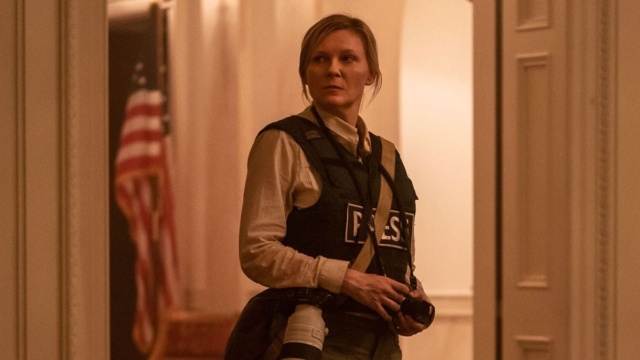
This seems like a great idea in isolation, as the film is set to explore what drives Lee as a journalist and what pushes Jessie to follow in her footsteps. However, Garland doesn’t seem interested in drawing a compelling relationship between the journalists stuck on the frontlines of a war that has fully divided America, but would rather observe them through a distant (and often distorted) lens. They photograph images that deeply affect them but never enough in a way that feels psychologically (and, most importantly, politically) active.
Civil War contradicts its own ideas
When the journalists are confronted by an alt-right, white supremacist soldier (Jesse Plemons) who asks them, “What kind of American are you?” as they plead to let them go, one wonders exactly what the point of all of this is. Throughout the film, Garland continuously paints the journalists as adrenaline junkies who look for the most dangerous situations to put themselves in, and don’t much care for human casualties since they’ll make for great “stories” to tell and “shots” to photograph. This is shown in a grotesque montage which juxtaposes people caught in the crossfire being senselessly murdered while De La Soul’s “Say No Go” blares at full blast on the speakers.
This decision may be the most shortsighted of the entire film, but one that wholly sinks its thesis. The fundamental misunderstanding of the songs he chooses never creates striking (or jarring) juxtapositions but instead attempts to justify its exploitative trauma porn, as most of the casualties are people of color, who get shot at, burned, and even decapitated. It’s rote and repulsive and not at all visualized in the intended effect Garland wanted to depict.
But in the Jesse Plemons scene, the journalists must appeal to the soldier’s humanity to survive, a complete reversal of their adrenaline-first stance that permeates the entire film (the scene before this shows Joel’s best friend entering their car as they’re driving at 120mph). At that moment, their humanity gets revealed since they’re pitted in a situation involving real, terrifying danger.
But they won’t do the same when the trio takes cover in the heat of a battle that sees a helicopter shoot at the White House’s gate to blow it up. (notice Joel’s maniacal grin: he enjoys the carnage). At that moment, they also seemingly forget the confrontation with the soldier, as if it’s a minor setback to their journey to Washington, even though people Joel and Lee care about got brutally killed.
These sudden narrative and character development swerves create wobbly arcs and unremarkable performances. Spaeny is the only one who actively attempts to craft something compelling with Jessie (but Garland’s surface-level writing can only make her go so far). Kirsten Dunst seems disinterested in the material on screen (which feels weird when playing a journalist who seemingly attempts to say something about the war through her lens), while Moura and Henderson feel like they belong in a completely different film. (Henderson is always excellent and A24 seems to enjoy him being in their movies)
A political film with no sense of visual identity
It also doesn’t help that the film has no sense of visual identity, even if shot for IMAX, with cinematographer Rob Hardy often using bokeh to distort Lee’s perspective. But this is never in a way that feels as immediate and striking as Zack Snyder in Army of the Dead and Rebel Moon: Part One – A Child of Fire. This visual choice instead cheapens the look of the film and its action sequences, making it more akin to a Uwe Boll-type political thriller (think the no-nonsense dollar-store look of the Rampage series) than a modern-day thriller that matches the visual urgency of Pontecorvo and Costa-Gavras’ filmography.
These aforementioned filmmakers consistently engaged with their characters and the political messaging they conveyed on-screen, delivering rich, cogent (and often controversial) movies that still ring true. In today’s politically unstable era, adopting a ‘centrist’ position on the political text of your movie, whether fictional or not, or directly refusing to engage with any of the ideas you present is inherently gutless. It’s even worse when you find out that Alex Garland used archival footage in the film shot by Andy Ngo, a right-wing social media figure who has frequently been accused of stealing content, deceptively editing his videos, and intentionally misleading his followers.
One could initially brush off this revelation, as Garland uses many archival clips at the top of the movie to describe the start of the Civil War. However, after crediting Ngo for the footage, one wonders exactly what his intentions for the film were. Whatever they ultimately are, they’re definitely not born out of an urgency to warn people of what would happen if Trump gets re-elected, but something far more deceptive and sinister that even the most politically astute may find completely rancid. “Apolitical by design,” it is not.
One thing’s for sure: Civil War’s cautionary tale is not in the film itself, but outside of it, where Garland indirectly tells its audience that staying silent and being “in the middle” of what’s currently going on in the world is the most gutless thing you can do, no matter if you’re a journalist or citizen.
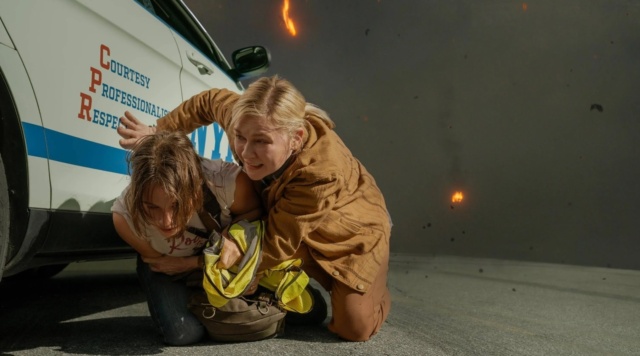
Alex Garland’s normative ideal for this film is misguided
Rasmus Kleis Nielsen has argued that “we do not get more from journalism by simply wishing for more from journalism,” and the one thing journalism should properly do for democracy is “provide people with relatively accurate, accessible, relevant, and timely independent information about public affairs.”
He believes this normative ideal is the most democratically realist goal because “it provides a normative horizon that is aligned with what journalism might conceivably do, aligned with what journalists might conceivably want to do and focused on something that no one but journalists routinely and regularly do.”
If journalists attain this ideal, they will never reach objectivity (since it is, in his own words, “hard to do”) but will instead regain the trust left in the population who fear journalism is too biased, either from the right or the left.
The practice of journalism itself is inherently biased, no matter the clinical approach one may take in depicting the war. The practice itself has not been soiled by Trump, Biden, or anyone in power. Our own view of the world will always guide how we, as humans, will depict events in print or within the prism of the camera. We each have our own biases, and anyone who thinks that “journalists must remain objective” is kidding themselves. Journalists are never inherently objective, and objectivity itself is a failed concept.
With that sole belief guiding Alex Garland that journalists themselves must remain objective and apolitical, with precise methods that detach them from their own personal baggage, Civil War becomes immediately misguided at best and perfunctory at worst. The journalists we see in the movie frequently imbue their own humanity as they take photographs or prepare to interview the President. When Joel ultimately gets a chance to talk to the commander-in-chief, he expresses personal attachment to a story that journalists are allegedly “detached” from.
With this one single moment, Garland has completely revealed himself as someone who has very little understanding of journalistic practices and their normative ideals, based on a failed belief that was not attainable when Schudson wrote Discovering the News, still isn’t, and never will be. Maybe Garland should try working as a journalist before talking about them.
A24’s Civil War releases on April 12, 2024 in cinemas. Do you plan on watching this film? Let us know on social media @mycosmiccircus or in The Cosmic Circus Discord!
Review: The First Omen Is The Perfect Horror Prequel
Monkey Man Review: Dev Patel’s Formally Audacious Directorial Debut

